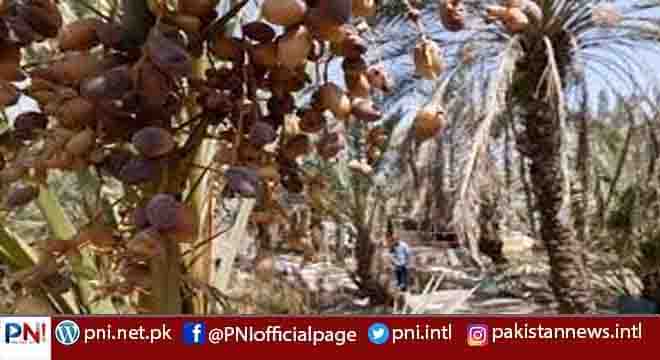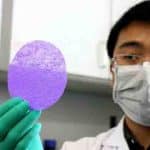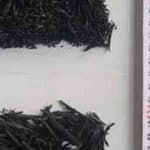Karbala, Iraq, July 17 (AFP/APP): Thousands of young date palms, Iraq’s national symbol, form lines that extend from the edge of the desert near the central city of Karbala and into the horizon.
Iraq’s prized trees are central to a push aimed to preserve a long-threatened ancestral culture, whose fruit historically presented prosperity across the Arab world.
“The date palm is the symbol and pride of Iraq,” says Mohamed Abul-Maali, commercial director at the Fadak date plantation.
Once known as the “country of 30 million palm trees”, and home to 600 varieties of the fruit, Iraq’s date production has been blighted by decades of conflict and environmental challenges, including drought, desertification and salinisation.
The Fadak plantation, taking its name from a date-filled oasis central to Islam’s origins, is a 500-hectare (1,235 acres) farm operated by the Imam Hussein Shrine in the nearby holy city of Karbala.
Abul-Maali hopes the project, launched in 2016, will “restore this culture to what it used to be”.
The grove is a repository for “more than 90 date varieties, Iraqi but also Arab species”, from the Gulf and North Africa, he adds.
The Iraqi varieties are among “the rarest and best” and were collected from across the country.
Of the 30,000 trees planted at Fadak, more than 6,000 are already producing fruit, according to Abul-Maali.
He expects this year’s harvest to reach 60 tonnes, a threefold increase on 2021.
The rows of new trees at the Fadak farm stand in stark contrast to the state of plantations in other parts of the country.
Follow the PNI Facebook page for the latest news and updates.









